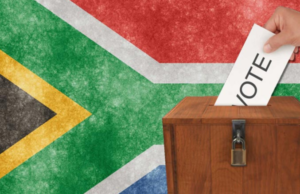
Curtains havecome down on another Africa Business Forum-UK-Africa Investment Summit pledging £2 billion (US $2.6 billion) worth of investments into Africa over the next two years from the United Kingdom. Similar commitments had also resonated from other destinations including the US, France, Germany, China and Russia. Hardly is there any country or corporate in the world, whose business plan does not include Africa. Africa Centricbilateral business forums now have become a sign of a country’s preparedness for the future. But how effective are those game plans?
An Indian perspective
www.trendsnafrica.com in close association with Africa4U, its sisterconcern carried out a survey, to elicit expert views on where India could gainfully participate in the continent’s development agenda. The survey was conducted bytalking to investors, experts, African diplomats based in India and anassortment of people who have knowledge about Africa, such as Indiandiplomats presently serving in Africa and those who had servedearlier, including former ambassadors/ high commissioners. Anoverwhelming majority of people surveyed (about 90%) felt that India’sintervention in Africa should be ideal in the social sectors likehealthcare, education, bridging urban –rural divide, skilling youththrough technology intervention, identifying segments that can helpthe poor and under privileged to earn sustainable income etc. In away, the survey results are supportive of the popular publicperception that India’s Africa development policy in the social sectorshould go beyond giving away scholarships, grants and concessionallines of credit.
Fig 1.What would the ideal and workable intervention of India in Africa
Segment % of respondents
Economic including manufacturing segment 10
Social Segment
90
Fig 2. What should be the most preferred intervention of India in Africa?
Sectors indicated % of respondents
Manufacturing 20
Agriculture 5
Services 75%
Fig 3. Among the services sector, which vertical should engage utmost attention?
Segment% of respondents
IT&ITeS 20
Education 24
Healthcare 50
Tourism 6
Fig 4. In the healthcare segment, what should be most preferred intervention?
Segment % of respondents
Setting up hospitals & healthcare centers 40
Telemedcine 40
Pharmaceuticals 10
Medical devices 10
Healthcare intervention was voted as the first among the social sectorsthat should engage India’s attention. Indeed, there is a growingpresence of Indian players in the healthcaresector in Africa. Therefore, we decided to bring out a special feature on the prospects for cooperation in healthcare.
Why healthcare? Statistics is revealing. Studies indicate the hugehealthcare gap in the continent. The lifespan of an average African is11.4 years lesser than a world citizen and 16.8 years lesser than aEuropean. There is every indication that the gap could have widened onaccount of higher incidence of HIV/AIDS and Ebola. The maternal andchild mortality rates in Africa are more than double the worldaverage. Sub-Saharan Africa, which accounts for 11% of the world’spopulation, is burdened with 24% of the global diseases. Thirty sixof the 57 countries around the world, categorized as having criticalshortages in healthcare services, are in Africa.
The back drop
Healthcare in Africa suffers both quantitatively and qualitatively. Countries across the continent have access to just 1 per cent of the world’s financial resources for health but bear a heavy disease burden. To close the gap, African countries must look beyond, despite its lofty pledges and commitments, which remained only in paper. In 2001, AU had exhorted the member countries to allocate at least 15 per cent of their budget to the health sector each year. Many felt that was an exalted hope, for the resource poor countries, which have competing priorities to be pushed ahead. Only five countries have met the commitment – Botswana, Rwanda, Zambia, Madagascar and Togo. Even those, who met the target, there are many flip flops.
That said, Africa realizes that there is a need to mobilize resources from multilateral, bilateral as well as private capital to usher in a pathway to universal health. Some programs were unveiled. International Finance Corporation(IFC) have stepped in and launched the Health in Africa initiative in 2008 to encourage private involvement in healthcare. The focus was on using insurance as a tool for ensuring universal health. The African Business Coalition for Health a fund set up by Nigerian industrialist AlikoDangote, way back in 1994 tied up with GBCH Health 2017, a voluntary organization to form a Corporate Alliance on Malaria in Africa. It has brought together 12 companies and institutions, including Access Bank, oil major Chevron, and Syngenta, the agrochemical business, to fight malaria. Another programme, the Demographic Dividend, aims to widen access to reproductive and sexual health facilities for women and girls by investing in advocacy, research and training.
Many feel business and healthcare are closely tied up and government can deliver things on its own due to limited resources on its command and bottlenecks in health infrastructure. Despite the reservations from certain quarters, it is now universally accepted that the private sector should be brought into the fold. There raises the question as to what are the business opportunities in the healthcare sector.
Healthcare projections of Africa
(To come in a box)
- The health and well-being sector in Africa will be worth about US$259bn in 2030, with the potential to create over 16m jobs.
- Over half a million additional hospital beds
- Better production facilities and distribution/retail systems for pharmaceuticals and medical supplies
- About 90,000 physicians, 500,000 nurses, and 300,000 community health workers
How the private sector can benefit?
- Africa realizes that half of the investments are expected to be made by for-profit entities, with the rest spread between social enterprises and nongovernmental organizations. Most opportunities will be in the small and medium enterprise sector.
- Meeting the demand can deliver strong financial returns and has an enormous potential for development impact, by expanding access to health services for the poorest people and reducing the financial burden on governments.
- About 22% of Africa’s total health spending continues to be financed by donor aid. A 20% cut in international funding would be catastrophic for the 44 countries that rely on international assistance for at least 75% of their national AIDS responses.
Pharmaceuticals
There is acute shortage of medicines in Africa. A critical area is to boost the local production of pharmaceuticals on the continent. Africa represents 15% of the global population and has 24% of the global burden of disease but produces only 3% of the medicines used by its people. It is estimated that more than 80% of the antiretroviral medicines needed to treat HIV are imported from outside Africa so also for Ebola epidemics. A recent analysis shows that costs for most drugs produced in Ethiopia and Nigeria tend to be between 5% to 15% lower than the price of imported products.
The pharmaceutical sector is projected to grow from US $14bn in 2017 to US $22bn by 2025, with Africa expected to be the fastest-growing market globally. A stronger capacity to produce medicines locally is therefore essential for a healthier, stronger and more prosperous Africa.There is huge untapped potential in Africa’s health sector, and opportunities abound for the public and private sector
Imponderables
The problem becomes more complex when it comes to the number ofregistered hospitals in the continent. According to the World HealthOrganization (WHO), the African continent has about 979 registeredhospitals (as of September 2017), compared to 688 registeredhospitals in India alone. What more is the veryskewed spread ofregistered hospitals in Africa. Most of the registered hospitals arein South Africa (372) and Nigeria (292). The count for some of thecountries in the continent is as low as one registered hospital inthe entire country. The number of countries with least registeredhospitals (one hospital) are Malawi, Gambia, Gabon, Mozambique,Congo, Comoros and Togo. Countries having between 2 and 5 registeredhospitals are Malawi, Burundi, Ghana, Guinea, Lesotho, Liberia, Mali,Mauritius, Namibia, Seychelles and the United Republic of Tanzania.The argument that some of these countries are too small to have morehospital is misplaced since barring a few countries in this group,the disease burden of other countries are very high.
To top it, thecontinent in general lacks a regular supply chain of affordable medicines and pharmaceuticals because of limited indigenous production of drugs and scarce medical research facilities.
The Indian healthcare companies are increasingly looking at Africa in a more focused manner. One among them is WIWO specialized hospital, which is based in Kigali, capital city of Rwanda, which provides comprehensive and cost effective healthcare, tailor made to the requirements of ordinary citizens. Says S Rajagoplan, one of the directors of the hospital,” WIWO has envisioned a comprehensive 6-D model to the current and future needs of Africa that are daycare surgeries using laparoscopy and endoscopy, dentistry, dermatology,
diagnostics, diabetology, and dialysis in our hospital in Kigali, under the supervision of highly specialized doctors and para medicos.” It also has another hospital in Mozambique –Global Health Innovations, catering mainly to the local population. The company –Senses-is based in Begaluru, India. It has pharmaceutical interests in Mauritius and Eswatini with the brand name Nova, while in Rwanda, the pharmaceutical division is known as Cemens Pharma Ltd.
Large Indian hospital groups like Apollo and Fortis already have an on-ground tertiary hospital presence in countries like the Democratic Republic of Congo, Nigeria, and Tanzania. Dr.Agarwal’s Eye Hospitals are located across Madagascar, Mauritius, Mozambique, Nigeria, Rwanda, Seychelles, Uganda, and Zambia. These should not remain as isolated interventions by the Indian corporate hospital sector. More such examples should come since the healthcare gap in most of the African countries is huge compared to their disease burden.
What should be the strategy to make the Indian footprint in the African continent stronger? One person who does not like to be
identified says that, “There is a sound rationale of the Indian government giving more focus to social sectors such as health in
Africa since Chinese, the US and Russia and Europe are already established their strong presence in sectors like infrastructure,
mining, manufacturing etc. With the type of healthcare manpower India has, such as doctors, nurses and other paramedical staff, it can easily cater to the health requirements of the continent. Also, India’s healthcare solutions are cost effective compared to that of
the US and European medical systems and that way more relevant to the African requirements.”
A clear cut role is also for the construction industry in India. Africa needs more hospitals across the continent. There are many
Indian construction majors, such as ShapporjiPallonji, L&T etc, which are specialized in hospital construction. They can build hospitals in Africa either through joint ventures with local industry or on their own. The line of credit being extended by the Government of India from time to time can be used for this purpose, which also will have a spin off effect of creating employment locally.
Medical tourism is another area that can be promoted in Africa. But an average African is poor to take up travel to low cost medical hubs like India. “What we should do is to develop hospitals in Africa for catering to the health needs of the neighboring countries. This is what we are trying to do in our hospital facilities in Rwanda and Mozambique,” says Rajagoplan.
Setting up a sound hospital infrastructure, as well as availability of trained medical professionals are crucial for Africa to strengthen its health delivery systems. The continent sadly lacks health workers including doctors, medical and para medical staff. The hospitals are under- staffed with poor opportunities for continuing education and professional development. According to reports, Africa has about one doctor for every 4000 people. WHO has projected Africa’s health worker’s deficit to touch 4.3 million by 2035. In short, Medical education is another area where Indian companies can play a key role.
MediSysEdutech Private Limited, a social business enterprise committed to the deployment of ICT and simulation to support healthcare education is very optimistic about the significant impact it can make in Medical education in Africa.
Speaking about their entry into Zambia, and the prospects in Ghana, Ethiopia etc where the company has explored the relevance of the offering, Mr M N Rao, chairman&CEO of MediSys explained “strengthening an association with Africa in health and education has been an important priority for the Government as also to the private sector.MediSys products can help in scaling up quickly in terms of assuring consistent standards, better learning outcomes, higher enrolments and far lower overall costs” Innovation, frugality and collaboration are vital for the sector’s development, he added
There are some new initiatives that India is harping on. It has value added to the pan-African e-network project initiated by the
Telecommunications Consultants India Ltd. (TCIL), with financial support from the government of India. The project provides tele-medicine services by Indian medical specialists through on-line consultation to medical practitioners at the patients’ locations in Africa. These are regularly conducted from super-specialty hospitals from India to various African countries based on need. In addition, regular ‘Continuing Medical Education’ sessions are conducted from 11 Indian super-specialty hospitals on this network.
Yet, many feel that India’s involvement should go much beyond what is happening now to make more impact in Africa. India can have a string of hospitals, medical colleges, diagnostic centers, para medical training centers in different countries. Only way to make it happen is to encourage the private sector healthcare outfits to invest in Africa. That calls for a greater degree of encouragement from the government including liberal financial support. Will that happen in the coming days, is something that is being awaited by the Indian healthcare sector, particularly the small and medium players. On the top of it, such an investment can strike an excellent chord with Africa and its people.











